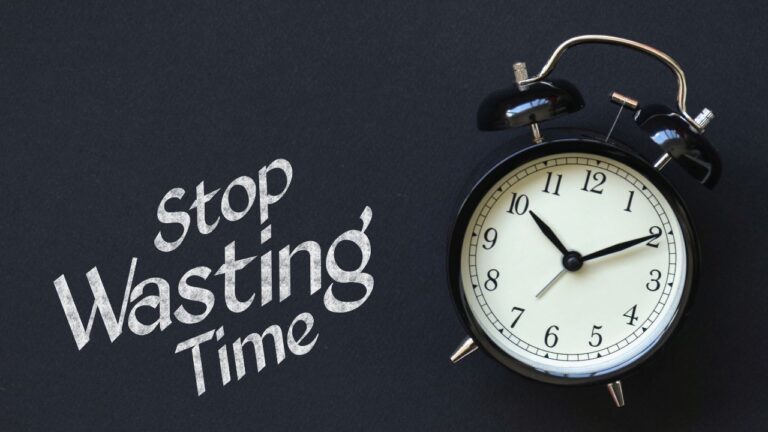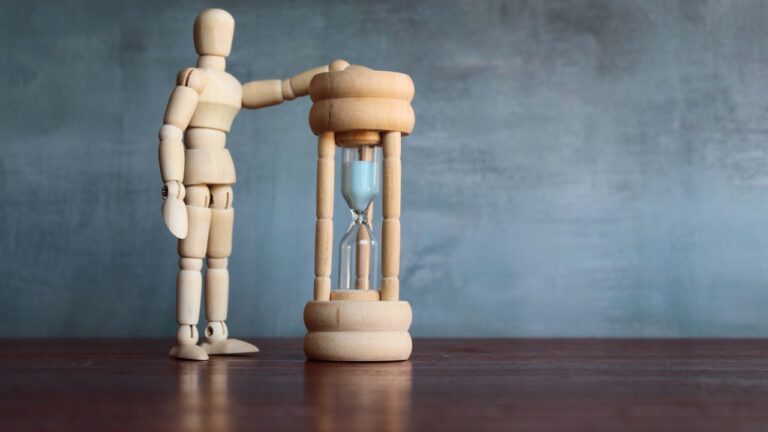Want More Free Time Here’s How to Reclaim Your Day
I've uncovered that most people who claim they don't have enough free time actually have more control over their schedule than they realize. Like you, I once felt trapped in an endless cycle of tasks and obligations, watching my precious hours slip away. Through careful analysis and strategic planning, I've learned how to recapture those lost moments and convert them into meaningful free time. Whether you're hoping to pursue a passion project, spend more time with loved ones, or simply enjoy some peaceful solitude, I'll share the exact methods that helped me gain back control of my day and create the balanced lifestyle I'd always wanted.
Key Takeaways
- Conduct a weekly time audit to identify where your hours are being spent and eliminate activities that don't serve your goals.
- Block specific time periods for essential tasks while maintaining buffer zones between activities for smoother transitions.
- Reduce non-essential screen time and limit email checks to reclaim up to four hours of productivity daily.
- Establish consistent daily routines, including a structured morning routine, to minimize decision fatigue and enhance efficiency.
- Break larger tasks into smaller chunks and disable notifications to combat procrastination and maintain focused work periods.
Assess Your Current Time Usage
In order to reclaim your day, you'll need to take an honest look at where your time actually goes. I recommend starting with a weekly time audit, tracking every hour of your activities to identify where you might be losing precious minutes without realizing it. You'll be surprised at how much potential free time you can uncover through this process.
I've found that using time-tracking apps makes this assessment much easier, as they help you quantify exactly how long you spend on different tasks throughout your day.
When I work with clients to assess their schedules, we often reveal patterns of overcommitment and time-wasting habits that can be eliminated to create more breathing room in their daily routines.
Take time to evaluate which activities truly align with your goals and personal values. I suggest reviewing your commitments and carefully considering whether each one deserves a place in your schedule.
Identify Essential Daily Activities
A well-designed life starts with pinpointing the activities that truly matter to you. To identify essential daily activities, I recommend listing 4-5 key tasks that consistently make you happy and fulfilled. These might include exercise, reading, creative work, or spending time with loved ones.
Once you've identified these core activities, it's time to protect them by scheduling specific blocks of time in your day. I treat these commitments just as seriously as any other appointment, guaranteeing the time spent on what's important doesn't get pushed aside.
To make this work, you'll need to examine your current schedule and eliminate activities that don't add real value to your life.
I encourage you to conduct a regular review of your essential activities every few months. Your interests and responsibilities may change, and your daily routine should reflect that evolution.
Eliminate Time Wasting Habits
Time-wasting habits silently steal precious hours from our days, often without us even noticing. I've found that most people lose around two hours daily to non-essential screen time, but you can eliminate these distractions and reclaim your important time through simple changes in your routine.
To enhance your productivity, I recommend limiting your email checks to just two or three times per day. When you constantly switch between tasks to check messages, you're losing up to 40% of your productive time to these interruptions.
I suggest creating a clutter-free workspace and turning off notifications on your devices to maintain better focus.
One of the biggest time-wasters I see is procrastination, which not only increases stress but also compromises the quality of your work. You can overcome this by breaking tasks into smaller, manageable chunks and tackling them promptly.
I've uncovered that by reducing excessive social media use and implementing these strategies, you can save approximately two hours each day. That's time you can invest in activities that truly matter to you, leading to greater satisfaction and accomplishment.
Create Focused Time Blocks
Now that you've identified and eliminated time-wasting activities, let's put your reclaimed hours to better use through time blocking. I've found that dedicating specific time to work on particular tasks helps me stay focused and accomplish more throughout the day.
Start by planning your week in advance, marking out blocks for your most important activities. I recommend setting aside time periods when you typically have the most energy and clarity. For example, if you spend a lot of time in meetings, block off chunks of uninterrupted work time between them.
Remember to build in buffer zones between blocks, giving yourself breathing room to shift smoothly from one task to another.
While structure is important, I've learned that flexibility is key. You'll want to leave some open slots to handle unexpected matters that pop up, ensuring you don't fall behind when surprises occur.
This approach means you'll need less time to catch up later and can actually look forward to tackling your tasks. By organizing your schedule this way, you'll find yourself completing more work while maintaining better balance in your daily routine.
Maintain Consistent Daily Routines
Building consistent daily routines serves as the foundation for lasting productivity improvements. I've found that when you establish regular patterns in your day, you'll reduce the mental energy spent on decision-making and free up your mind for more important tasks.
Start by creating a morning routine that sets a positive tone for your entire day. I recommend choosing 3-4 activities you'll do every morning, such as exercise, reading, or planning your schedule. This consistency will help you feel more focused and happy as you tackle your daily responsibilities.
Your routine should include dedicated time blocks for different activities, but don't forget to build in flexibility for unexpected situations. I suggest reviewing your routine every few weeks to verify it's still serving your needs and making adjustments as necessary. This adaptability will help you maintain productivity without feeling trapped by rigid schedules.
Remember to maintain consistent sleep and wake times, even on weekends. When you regulate your body's natural rhythm, you'll notice improved energy levels and mental clarity throughout your day.
A well-structured routine becomes second nature over time, allowing you to accomplish more with less stress.
Conclusion
I've found that reclaiming your time isn't about working harder – it's about working smarter. By conducting regular time audits, identifying essential activities, and eliminating time-wasting habits, you'll uncover hours you didn't know you had. Start with small changes in your daily routine, implement focused time blocks, and maintain consistency. Remember, every minute you save is another minute you can spend doing what truly matters to you.







